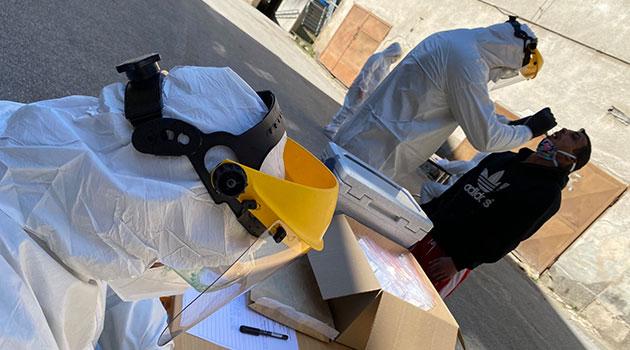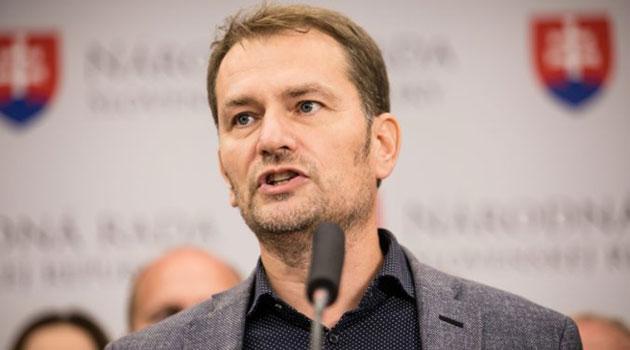Slovak PM says local Roma who completed COVID-19 quarantine are role models for the country

Slovak public health officials ended the COVID-19 quarantine of the Romani settlement of Bystrany in Spišská Nová Ves district on Saturday. No further cases of infection have been found since the first tests were undertaken and nine people who previously tested positive have recovered.
According to Slovak Prime Minister Igor Matovič (OĽaNO), those living in the Romani settlement have become an example of discipline. “We can confirm some positive news. We were forced to put five Romani settlements into quarantine 16 days ago, but today the very first one, Bystrany, can be opened and released from quarantine,” Chief Hygienist Ján Mikas said Saturday during a press briefing in Bystrany that was broadcast by television station TA3.
Mikas also thanked all who provided aid to people in the settlement and to its inhabitants for their discipline. He said he believes that positive news from the settlements in Krompachy will soon arrive as well.
“We still have one closed settlement in Žehra and it will have to be closed for at least a week longer, if not more, because yesterday [Friday, 24 April] another case of novel coronavirus was confirmed there,” Mikas said. According to the PM, the Romani settlement in Bystrany has now become a role model for all of Slovakia.
“Given that the people said they would be responsible, stuck to the rules, and didn’t have to have any soldiers or police officers around their homes to keep them at home, they managed to get rid of this virus, as a society. If we, as Slovakia, take as our role model this ordinary Romani settlement and behave in a similarly responsible way, then we will manage the absolutely same small miracle that the people managed in Bystrany itself,” the PM said.
Slovak Government Plenipotentiary for Romani Communities Andrea Bučková also expressed appreciation for the inhabitants of Bystrany and for all who contributed to coping with the unpleasant situation. “I thank all the people who endured the quarantine, all those who provided aid – the staffers from the helping professions, the Army of the Slovak Republic and the police corps, the NGOs and last but not least my colleagues who have been in the field each day irrespective of whether it was regular work hours or not. Thanks go to all the rest who decided of their own free will to sacrifice their time and resources and who assisted those who remained closed in,” she said.
“There is, at the same time, an obligation for all essential measures to be maintained. The rules published by the Chief Hygienist continue to apply to all, let’s not forget that,” the Plenipotentiary said.
MEP Peter Pollák (OĽaNO), who is a member of the Permanent Crisis Team, is convinced that by performing targeted testing on people living in the Romani settlements, many lives have been saved. “As of today we have tested approximately 6 000 people in the Romani communities. Of those, the novel coronavirus was found in 23 communities. I am glad we have identified the community of Bystrany as one of the first where we have managed to save many other people from perhaps becoming infected,” he said.
“We did it, we have demonstrated that Romani people, too, are disciplined and know how to take care of themselves and their children. I believe a great deal of work was done by the Local Public Order Service (MOPS), social workers and others,” said František Žiga, the Mayor of Bystrany.
